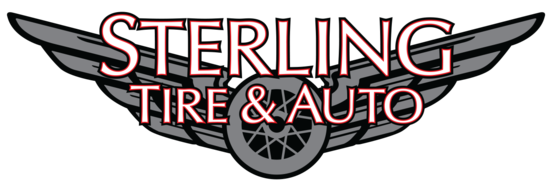It's Brake Time (Brake Calipers)
January 24, 2021
Race car drivers have demonstrated the advantages of disc brakes, so most modern vehicles use them. Sometimes just the front wheels have disc brakes, but many vehicles now have them all the way around.
A major component of the disc brake is called a caliper. It works by squeezing brake pads against the disc or rotor, kind of like a bicycle hand brake. The brake pads themselves are what contact the rotor, causing friction to build and the wheel to slow down, but it's the calipers that apply the pressure to the pads.
Caliper design has evolved over the years, and there are two common types. One is called a floating caliper. It has one or two pistons on one side of the disc. When you push down the brake pedal, the piston or pistons in your caliper put pressure on that one side. A mechanism connected on the other side of the disc applies pressure as well, squeezing your disc so the vehicle stops. Floating calipers are less expensive since they have fewer parts.
The other type is called a fixed caliper. They use pistons on both sides of the disc, sometimes several. They are often used in more high-performance or heavy-duty vehicles.
Calipers can have rubber seals to keep out dirt, debris and moisture, but when that rubber wears out, sometimes the calipers can get contaminated. They can stick or start leaking; they can even rust. Then your caliper can get stuck applying that "squeeze" when you are not pressing on the brake pedal. Or they can get stuck in the other position, not applying stopping power when you press the pedal.
When this happens, it's not unusual to feel your vehicle pull to one side when you brake. You might notice a burning smell from the constant friction if the caliper is stuck on, plus you may feel the heat from the wheel after you park and get out of your vehicle. Sometimes you'll hear a high-pitched sound or clunk if your calipers are binding up.
That's your cue to have them checked out at your vehicle service center. If your calipers aren't working correctly, it can be a safety hazard. Sticking calipers can affect your ability to steer and stop; this is the kind of "brake time" you need so you can get them back on track and working properly.
Sterling Tire & Auto
34701 Van Dyke Rd
Sterling Heights, Michigan 48312
586-264-7775
Need Service?
More articles from Sterling Tire & Auto

If the Shoe Fits (Brake Shoe Replacement [Rear])
February 22, 2026
When it comes to brakes on your vehicle, we all know how important it is to keep them working well because they are vital safety equipment. After all, if you cant slow down and stop, you cant drive safely. While many vehicles use what are called disc brakes, theres another type of brakes that ... More

Rumble from Down Under (Muffler Replacement)
February 15, 2026
Weve all noticed them at one time or another on the street: a car or truck that drives by and the deep roar from their exhaust system sounds like a drag racer on the line. But what happens when that rumble is coming from under YOUR vehicle? Well, it could be a sign your muffler needs attention. ... More

Go with the Flow (MAF Sensor Replacement)
February 8, 2026
If your vehicle has an internal combustion engine, it depends on two things to make propulsion power for you to be able to motor on down the road: fuel and air. The engine mixes the two in just the right proportion so that they can be ignited, creating a series of tiny explosions that are coordi... More








